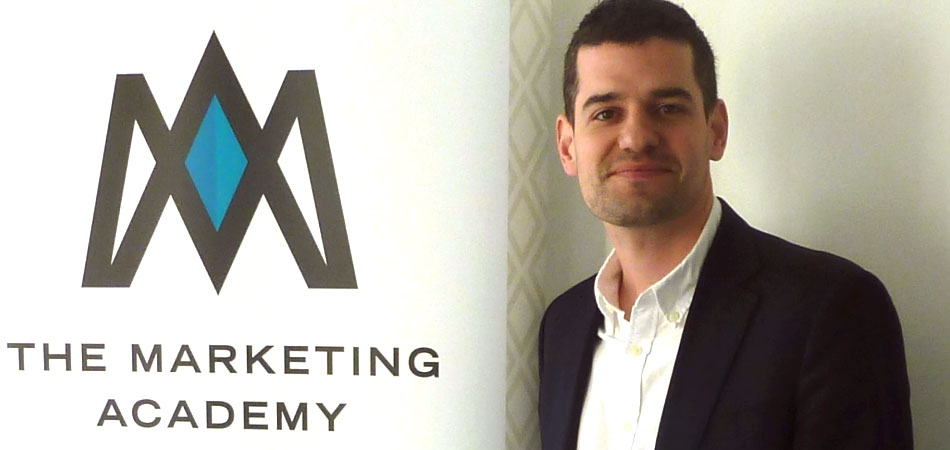
Dreamies investigation proves that the treats are irresistible to cats
The campaign by Adam&EveDDB concludes that the only cats who don’t love the pet treat are human Cats
Head of Marketing at ITV and 2011 Scholar at The Marketing Academy


Tom Holmes, creativebrief Founder & Chairman, talks to Paul Ridsdale, Head of Marketing at ITV and 2011 Scholar at The Marketing Academy.
Since leaving Southampton University in 2000, Paul has worked in the Marketing Department’s of several leading media companies including Sky TV, BT Vision (part of BT Group) and currently ITV. In that time he has been responsible for some of the UK’s largest TV channel brands including Sky Sports, ITV2 and most recently ITV1. As well as overall responsibility for these channels, Paul has developed campaigns to promote world famous content brands including Barclays Premier League football, The X Factor, Downton Abbey and The Only Way is Essex.
Most of Paul’s roles to date have focused on holistic brand management, leading the development of a brand strategy and then working with other areas of the business to execute activity across the various consumer touch points. Paul is currently a member of the Executive Board of Promax UK which works to promote excellence within the UK television marketing industry as well as being a Scholar of The Marketing Academy.
Paul Ridsdale: After studying physics at university I found myself staring at a lifetime poking around in darkened laboratories. Terrified of that thought I decided to try a career which made use of my analytical background whilst also providing a creative outlet – and nothing seemed to offer that more than marketing.
Paul Ridsdale: I believe there are actually many different ways to be successful and people need to develop their own style. But over and above ‘being yourself’, I think one of the most important elements for success is to focus on getting as close as possible to your customers. Listen to them, observe them and then represent their interests around your business. But importantly, don’t mistake this approach for asking consumers to do your job for you. We still need to make the big decisions ourselves and back our instinct.
Paul Ridsdale: Not the most obvious choice but I recently heard a talk by Tim Westwood (the Radio 1 DJ) given to the Marketing Academy and was struck by how natural a marketer he was. In the absence of any formal marketing strategy, he manages to stay relevant by embedding himself in the lives of his target audience. He lives their lives, watches what they’re doing and spots the trends early enough to ride on the wave. Given his enduring success, I think it’s a great example for more technical marketers to learn from.
Paul Ridsdale: It feels to me like marketing is having a ‘dot com bubble’ moment. Technology is causing everything to change at a pace we haven’t seen before in the industry, and this is causing fear, panic and there’s a herd mentality pushing everyone to do something ‘innovative’ whether it’s the right thing or not for their business. I think the challenge is therefore to embrace new technologies as tools to help us do our jobs better, whilst remembering that many of the fundamental principles of marketing are still the same.
Paul Ridsdale: Firstly, I try not to read everything that’s out there. If I did that I’d worry that everything I’m doing is outdated, ineffective and that the definition of marketing has been re-written since last week. Beyond that I’ve found the most useful filter is my colleagues – we have an email group (and email’s dead isn’t it?) where people can share the very best new things that they’ve seen or heard about. By working as a group to discover and share new stuff you massively increase the quality and relevance of ideas that you hear about.
Paul Ridsdale: I still look to our agencies to come to us with new and creative ideas and solutions. It’s just that the access that everyone now has to information means the bar is being set higher and higher in terms of our agencies really impressing us. But at the end of the day we’re paying them for their expertise, so if they can’t bring something extra to the table then there’s something wrong with the model.
Paul Ridsdale: The main thing I look for is whether it feels like we’re partners, rather than client and agency. I want to feel like they understand and care about my business and brand as much as I do. And I want them to come to me with ideas spontaneously, rather than waiting for me to ask them a question or give them a brief. When this happens I think the relationship becomes much more rewarding and motivating for the agency too.
Paul Ridsdale: It does frustrate me that marketing is often seen as a lesser function compared to other key business areas. Sadly there are now many companies where marketing is not at the heart of strategic discussions helping to shape the direction of the business. And in the worst cases, marketing becomes little more than the ‘colouring in department’. But whilst it’s frustrating, I think it’s down to marketers to change these perceptions. We have to earn our place at the top table by demonstrating how we can add value and truly transform companies. If we can’t sell the benefits of marketing to our colleagues then we’re probably all in the wrong job.
Paul Ridsdale: Personally I see myself as more of a generalist but maybe that’s because I don’t want to claim to be a specialist at anything! There certainly are specialists in the field of marketing and I’m always amazed and a little jealous that they are so brilliant at their ‘thing’. But I have a broad interest in business and so I’ve tried to stay in roles where I’m able to interact with lots of different parts of the marketing mix and also contribute to projects and initiatives outside of marketing. That may well make me a jack of all trades but I’ve always thought it’s those people who make the best CEOs!
The Marketing Academy is a non-profit organisation which provides a unique forum for industry leaders, marketing gurus, entrepreneurs and inspirational people volunteer their time to inspire, develop and coach the next generation of future leaders. The Marketing Academy gift a maximum of 30 ‘Scholarships’ each year to the fastest rising stars in the marketing, advertising and communications industries. A team of high profile mentors and coaches develop these stars through a process of mentoring, coaching, networking and personalised learning. 86 mentors, 30 Coaches, 20 Judges, 36 companies and an owl called Merlin all provide their time, resources and knowledge to assist in shaping the minds of our future leaders. Furthermore as a vital part of their curriculum all Scholars volunteer at least one day per year through our Donate28 initiative to work with charities who need bright young marketing minds. For a full list of the individuals involved, see the Sherilyn Shackell interview.
Looks like you need to create a Creativebrief account to perform this action.
Create account Sign inLooks like you need to create a Creativebrief account to perform this action.
Create account Sign in